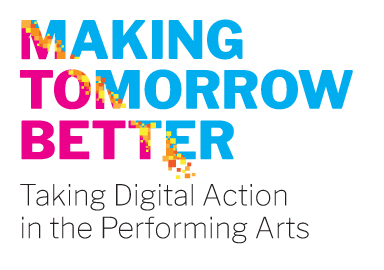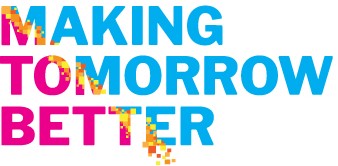BCMA2020 Virtual Conference: A Case Study
Online Conference Results and Lessons
By Lynn Feasey (Points North Creative) and Inga Petri (Strategic Moves) in conversation with Ryan Hunt and Vanessa Gelhaar (BCMA), December 2020
In July 2020, in response to the COVID-19 pandemic, the British Columbia Museums Association (BCMA), in partnership with Heritage BC, launched a project titled: Future Perfect. Canada Council for the Arts funded this project to research, develop and test new models of online, blended, and physical conferences in the Arts, Culture and Heritage Sector.
The main objective of Future Perfect is to learn how to create awesome online experiences for people, and for the organizations who present them. In conversation with Vanessa Gelhaar, Operations Manager and Conference Organizer for BCMA, and from the post-conference participant survey, many valuable insights were gleaned from the BCMA’s 2020 Annual Conference.
About BCMA
For over 50 years, the British Columbia Museums Association (BCMA) has worked to create a bright future for British Columbia’s museum, gallery, and related heritage communities through networking, advocacy, innovation, and professional development. BCMA delivers year-round programs and services to the benefit of its members and the sector at large, acting as the cultural and heritage information hub for British Columbia while providing a unified voice for the institutions, trustees, professional staff and volunteers. BCMA also delivers an annual conference in service to its members, and non-members alike, which is the subject of this case study.
Conference Design & Delivery
BCMA moved their annual fall conference online as a response to the uncertainty for in-person events due to COVID-19. BCMA has been successfully delivering professional development webinars online and felt confident moving the conference online rather than cancelling it. The team committed to delivering the type of conference that their membership has come to expect, including two social events: Tales from the Trenches, to open the conference, along with the BCMA Awards Gala, to close the conference.
BCMA’s key objectives
- to create connection and meaningful engagement
- to keep the technology simple, and
- to make the 2020 Conference a memorable, special experience which they could learn from
| Dates: October 6-8, 2020
Duration: 3 days Platform: Zoom Day 1: 1 hour conference kick off Day 2: 4 hours conference material & 1 ¼ hours break time Day 3: 4 hours conference material & 1 ¼ hours break time & 1 ½ hours gala Registration: Through existing membership portal Cost: Free to members and non-members for 2020 (a COVID-19 response) |
Lessons Learned
Registration Increased Due to Digital Access, Relevant Programming and No Costs
Moving the conference online and removing registration fees opened the conference up to virtually anyone interested and able to join. Registration for the 2020 Conference more than doubled from previous years (140% higher than in 2019). In the post-conference evaluation online survey, 39% of survey respondents reported attending the BCMA Conference for the first time in 2020.
Asked about why survey respondents decided to attend this time, the four most cited motivators were that they could attend digitally (83%), the professional development sessions (68%), featured speakers/experts/panelists (66%) and no registration fee (63%). Networking was a motivator for only 26% of survey respondents.
When asked what has been a barrier or challenge to attending in-person conferences in the past, cost (registration, transportation and accommodation) was cited by 69%, followed by location of the conference (52%), time away from work (46%) and travel time required (37%). These results make clear that an online conference format can alleviate these barriers to attendance.
Effective Use of Online Video Conferencing Technology
The team wanted to keep the technology straightforward. Using Zoom meant participants were already familiar with the platform which reduced the learning curve an integrated online conferencing platform would have presented. Although the platform itself was stable – and 63% of survey respondents reported “no issues” – BCMA did have quality issues with audio and video files during screen shares that disrupted content delivery. About 1 in 5 survey respondents struggled with their internet connection: 18% cited their slower internet connection as a frustration “because video and/or audio quality was poor” and another 7% reported keeping their video turned off due to low bandwidth.
Global management functions within breakout rooms were limited. In particular, BCMA did not have the option to have co-hosts help manage breakout interactions. However, being able to monitor and see immediate engagement, particularly during social events was useful.
Asked how effectively various technical aspects of the online conference were used, breakout groups were seen as effective by only about half the respondents (53%), while using chat to participate was effective for 74%, only exceeded by screen sharing of presentation slides which 86% felt was effective.
A large majority (88%) felt the visual layering of speakers, screen sharing presentations and seeing participant videos on their screens was effective use of the technology. 63% felt having live transcription/captioning available during a session was effective, but 84% felt having access to transcripts and chat recordings afterwards was an effective use of technology.
Session links versus a single conference link
BCMA set up each conference session with its own unique Zoom meeting link. That then required clear and effective communications to ensure all registered participants would know where to log on. 16% of survey respondents cited difficulty in finding these links. They would have preferred to have one link to all sessions, or links contained in one email, conference web page or scheduling tool.
In short, effective communications before and during an online conference are essential to ensure participants aren’t left scrambling for the most basic need: the necessary log on information.
Managing the Schedule Requires New Level of Collaboration with Speakers
As an online conference experience, the program must now come to the participant. There is no longer the physical sense of arrival to ground participants and keep them and the speakers on track.
For online events, speakers must prepare in ways they did not need to before, and opportunities must be made for engagement in order to keep participants focused and interested. In 2020, conference organizers found that keeping speakers to their allotted time was challenging.
Engaging Topics and Activities
Sessions were well attended overall, and most sessions and activities were seen to be of high or very high quality.
The most effective programming, according to registration and post conference survey responses, were topics related to current issues within the industry. Beyond the Black Squares, a bold and honest discussion led by Indigenous, Black and Persons of Colour (IBPOC) museum professionals was the best attended, most engaging session. This was followed closely by a roundtable on Decolonization, with a large majority of participants citing having learned something new, learned a lot, and being ready to take action.
Had these discussions only been offered in person, it would have been limited to the voices who were able to travel and fund attending, limiting engagement as well as the opportunity to simply listen. The online conference allowed people from a greater range of diverse backgrounds, age groups, and professional levels to participate, thus broadening the conversations and expanding viewpoints on these important topics.
Perhaps a result of this relevant and engaging content, 63% felt that the session length (most sessions were 1 hour long) was just right and 37% felt they were too short. No one felt sessions were too long.
Social Events
Conference organizers noticed that popular social events from previous, in-person conferences did not translate as well to the online format as some learning sessions. According to registration information, both social events drew less than half of the attendance compared to the average conference session.
Used to book-end the online conference schedule, Tales from the Trenches and the Awards Gala were considered valuable by the conference team. Both events are signature social events for the annual conference and, by including them in the online format, were meant to provide a sense of continuity and connection in a year of massive change. It was important to provide participants with a means to connect with their peers across the province, which was evidenced in a rapidly moving chat within the Zoom meeting during these social sessions.
To close the conference, BCMA hosted an online Awards Gala. In a year fraught with much uncertainty and change, it was important to honour peers and celebrate together. Most importantly, they wanted the evening to feel special. The gala took place from 6:00-7:30 pm. A signature cocktail, created by a local distillery, and shared in advance with participants was created especially for the event and prepared by the evening’s hosts, BCMA Executive Director Ryan Hunt and Program Coordinator Lorenda Calvert. Those who attended enjoyed the experience and reported a high rate of satisfaction, however attendance was lower than expected.
Future Conference Format Considerations
BCMA’s 2020 online conference experiment returned many valuable insights.
One relates to the design of the overall conference day. In the post-conference online survey the question about breaks returned important information (Question: “Some sessions took place back-to-back while others were run with an hour long break between sessions. What is your preferred time in between sessions to encourage you to attend all sessions that you are interested in?”). 73% preferred a short break of 15 to 30 minutes between sessions. 16% preferred a longer break (45 to 60 minutes) and 11% preferred back-to-back sessions.
When asked about the format (Question: “This year, we had a total of 8 professional development sessions over two conference days. Ideally, how would you prefer us to deliver our annual conference?”) 34% said they would want it exactly as it was done in 2020 because it was great. But there was also a desire for alternatives: 1) 27% said they would prefer stretching this conference into a one week conference with no more than two sessions each day and a long enough break in between them; and 2) 25% said they’d wish there had been spaces to talk about calls to action arising from some of these sessions.
Survey Results Before and After
The shift from pre-conference survey results to post-conference results requires some consideration here. The highest ranked format preference was a weekly session (35%), but that dropped to 5% after the BCMA conference. Instead a 2-day format which was the second choice pre-conference has been elevated to first choice; while the previous third choice, a one week conference with no more than two sessions and a long break, has moved to second choice.
In terms of length of sessions, pre-conference the one-hour format ranked highest for most kinds of sessions, with longer times possible if they include collaborative working sessions, and shorter if they are strictly networking. The post-conference feedback pointing to the one-hour format having worked well and in some cases being felt to have been short attests to the power of relevant content and speakers.
Finally, the question about “All things being equal would you prefer attending our annual conference virtually or in person?” shows that nearly as many respondents prefer a virtual conference (51% yes; 43% it depends) as an in-person conference (53% yes, 45% it depends).
The Bottom Line
BCMA learned a lot from planning and delivering its 2020 Conference. Amongst these lessons, it is clear that in-person connection cannot easily be replaced online, yet gathering online opens up new and exciting opportunities in terms of accessibility, affordability, and building a larger engaged community.
Hosting a physical conference, BCMA’s attendance is somewhat limited, as organizations often register only one or two representatives, usually those in a senior management or board role. This is primarily due to the associated costs, and time away from the organization. The online conference format provides an opportunity for emerging professionals, junior staff, volunteers and other staff members to listen, learn and be included in any of the conference events they feel is relevant or important to their work.
This type of inclusion creates opportunities: More open access contributed to the higher registration, attendance, and perhaps engagement with some important sessions. This broader engagement can have significant positive impact on outcomes in the sector.
Gaining a larger audience also poses some challenges. One of BCMA’s strategic priorities is outreach to smaller, more remote communities across the province of BC – one of the ways they achieve this is by hosting the conference in different cities across BC. In light of the lessons from 2020, BCMA will rethink how to best serve their members and consider whether and how they can successfully offer a blended in-person / online conference experience.
BCMA will need to look at programming to reflect the needs of new and growing audience. BCMA will also consider redesigning their registration and survey forms to collect more accurate, targeted data as to who is attending sessions, what their motivation is, and what their needs are.
PDF Series (for download)
- Fundamentals of Great Online Conferences: A Practitioner’s Perspective on Design and Technology
- Streaming Technology Equipment Kit for Speakers
- Online Conferences: Essential Tips for Speakers Or How to Achieve True Participation and Learning Online
- Online Conferences Thrive on Attendees’ Participation: From ‘Attendee’ to ‘Participant’ in 7 steps
- Accessibility and Inclusion: Creating Better Online Conference Experiences for More People More Often
- Financial Considerations of Online Conferences: Cost Drivers and Revenue Streams
CASE STUDIES
Lesson: In the future, BCMA wishes to use the registration process to capture more information about who is signing up for the conference. BCMA also wants to better understand audience motivation for registering / attending when designing future programming.
Lesson: In the future, having pre-recorded material at suitable video resolution for reliable playback for lower bandwidth and slower speed internet networks may be an option to help avoid these issues and keep the conference schedule on track.
Lesson: Make a clear determination about the purpose of breakout groups for various sessions/activities and then experiment with ways to manage the breakout room experiences more effectively. Many options exist including providing tools and tasks for self-facilitation by participants, for instance using online worksheets, white-boarding tools; or assigning volunteer or staff moderators. Consider various ways to capture the breakout room experience, if useful for reporting on conference proceedings, such as enabling a moderator to record the breakout on their computer, using written output from worksheets or white boarding tools; or using a verbal or chat window to report back after breakouts.
Lesson: A more reliable way to manage participant schedules will be important to ensure effortless, easy access and attendance. This can be a combination of: a single conference web page for participants on the BCMA website, re-emailing links before each session, or using an integrated online conference platform that manages the conference schedule and sends alerts to registered participants within the platform itself.
Lesson: BCMA will be reviewing the role of the speaker, how they interact with participants, the quality of presentations, and how they can best prepare and present the speakers to maximize their effectiveness. A post-event speakers’ survey could be useful in gaining insight from their perspective.
Lesson: Content remains king. However, the strength of online conferences is the opportunity to create some new spaces for purposeful reflection in response to specific topics and sessions throughout the program. This could support participants to take action in their organizations. Specific times for facilitated networking is another opportunity for connection and peer learning.
Lesson: In the future, BCMA may experiment with integrating social events throughout the conference program to keep people engaged in the conference mindset/experience, while keeping energy high.
Some survey respondents also encouraged ongoing conversations outside of the conference about hot topics, such as decolonization and the experiences of IBPOC people and how museums relate to these communities.
Toward a blended conference model: This feedback points indeed toward considering adopting a blended conference model, where there is both a live audience and an online audience.
“A virtual conference means that you can have an increased diversity in presenters from all corners of the province. Also, moving forward, it would be unlikely for me to get the time off work and the financing to attend it in person. Having it online missed the in-person networking benefit, but drastically increased accessibility, affordability, and educational value.” Survey respondent
“I would prefer attending the in-person conference but am not always able to because of time commitment and the cost. Sometimes I can come, sometimes I can’t. For those times when I can’t attend in person, it would be neat if the conference was simultaneously available virtually (if it were possible!). Certainly, if the BCMA organizes other virtual conference (i.e. instead of an in-person conference), I would absolutely attend, at least for the sessions I could fit into my schedule.” Survey respondent
“Virtual was good in a pinch, but I miss seeing friends and colleagues in person. Perhaps a hybrid model in the future would be interesting to explore? In the past, some of the conference locations have been inaccessible to attend for us, so then at least we could participate online if we can’t make it in person.” Survey respondent
“Well done! The fact that this conference was free was great. I would still have been willing to pay a reduced fee to attend sessions if you had charged it. Just a thought for the future because I imagine that while this is cheaper to offer than a face-to-face conference, I’m sure there are costs for the BCMA and I don’t want you to go broke!” Survey respondent




